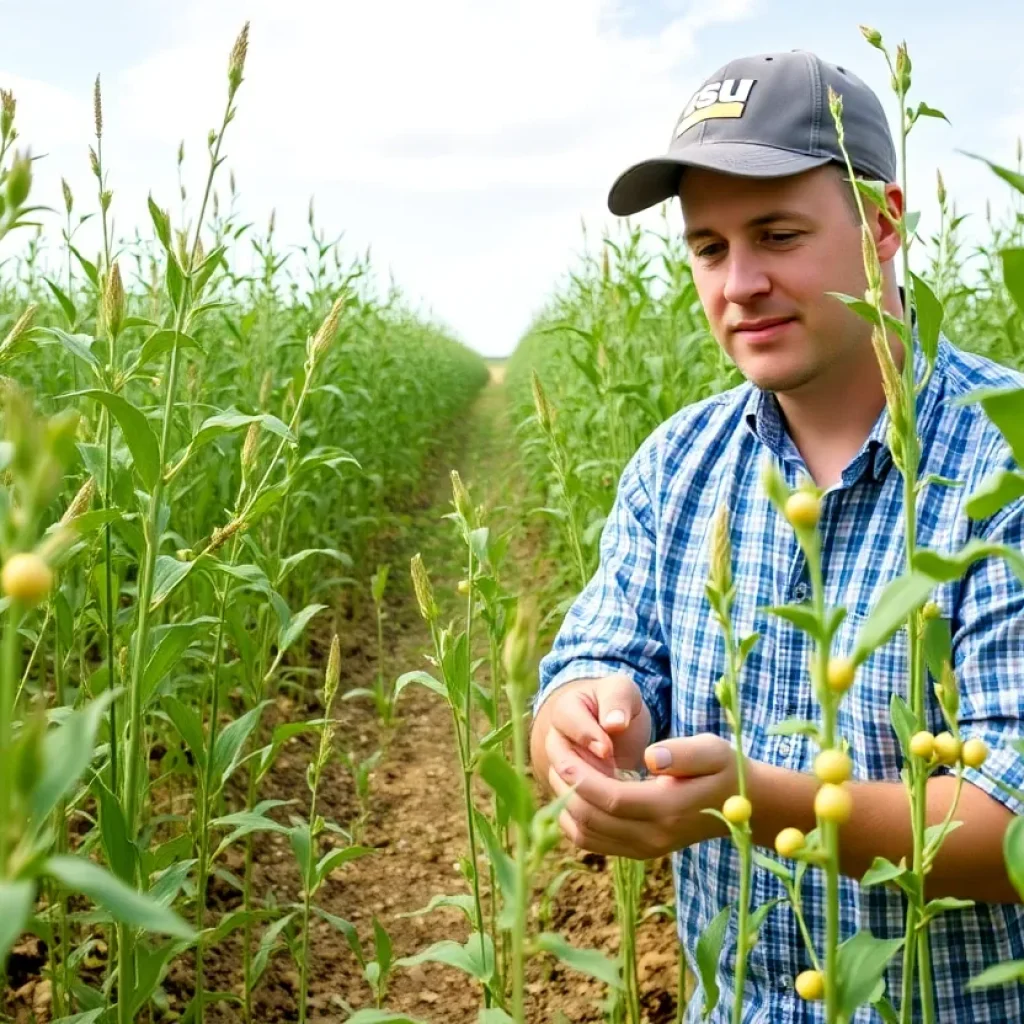South Carolina State University to Explore Chickpeas as Crop Option
Columbia, South Carolina — South Carolina State University (SCSU) has embarked on a new study aimed at assessing the viability of chickpeas as a dual-purpose agricultural crop, serving as both a fall cover crop and a spring cash crop. This initiative emerged following the recent announcement from the South Carolina Department of Agriculture regarding the allocation of federal grants designed to bolster specialty crop projects throughout the state.
Funding and Support
In August 2024, the U.S. Department of Agriculture (USDA) proclaimed a total of $603,000 in funding to South Carolina through its Specialty Crop Block Grant Program. This initiative is focused on enhancing the state’s specialty crop industry, which includes a diverse range of fruits, vegetables, tree nuts, and nursery crops. The South Carolina Department of Agriculture carefully selected five significant projects, including the chickpea study at SCSU.
Strengthening Local Agriculture
South Carolina Agriculture Commissioner Hugh Weathers expressed enthusiasm for the newly funded projects, stating, “Each year, we find new ways to use the Specialty Crop Block Grant Program to help South Carolina farmers thrive. These grants encourage growers to expand their markets, take informed risks, and grow more local crops. Supporting farmers is what it’s all about.” The projects aim to foster innovation and sustainable practices within the agricultural community.
Details of the Chickpea Study
The research at South Carolina State University will focus on testing chickpeas in the state’s climate and soil conditions. Chickpeas, primarily known for their role as a key ingredient in hummus, could potentially provide farmers with a lucrative spring cash crop option while serving as an effective cover crop that contributes to soil health in the fall.
Other Funded Projects
In addition to the chickpea study, other funded projects illustrate a broad range of agricultural advancements:
- An online marketplace and logistics system for the South Carolina Cut Flower Growers Marketing Co-op in Travelers Rest.
- Research at Clemson University aimed at detecting bacterial blight in brassica crops, enhancing peach resistance to bacterial canker, and improving fungicide applications in strawberries.
- Development of an AI-based agricultural database by Advent Innovations Limited Co., which will monitor crop health, control soil conditions, and predict yields.
- A unique study by Elgie Deberry Apiaries investigating flower selection through honey samples on Daufuskie Island.
Conclusion
The Specialty Crop Block Grant Program represents an essential resource for South Carolina farmers, focusing on fostering innovation and sustainability within the agricultural sector. As the study at South Carolina State University on chickpeas progresses, it has the potential to significantly impact local farming practices and economic opportunities for growers across the region.
For those interested in learning more about specialty crop initiatives and available grants, additional information can be found on the South Carolina Department of Agriculture’s website.


























